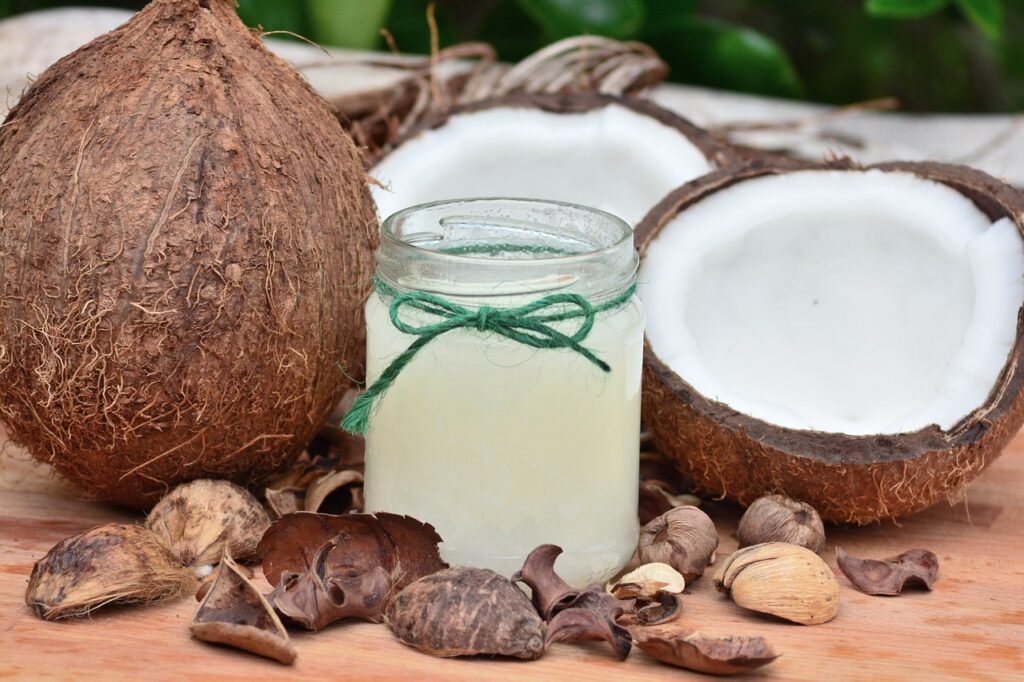In today’s health-conscious world, the importance of choosing the right edible oil cannot be overstated. Edible oils play a vital role in our daily cooking, but the choices available can be overwhelming. With so many options on the market, it’s crucial to understand which oils are beneficial for your health and which ones should be avoided. In this comprehensive guide, we will explore the best and worst edible oils, shedding light on their nutritional profiles, health benefits, and potential risks.

The Best Edible Oils
1. Extra Virgin Olive Oil:
- Nutritional profile: High in monounsaturated fats, antioxidants, and vitamin E.
- Health benefits: Reduces the risk of heart disease, lowers inflammation, and supports brain health.
- Culinary uses: Ideal for salad dressings, for drizzling over cooked dishes, and light sautéing.
2. Avocado Oil:
- Nutritional profile: Rich in monounsaturated fats, vitamin E, and antioxidants.
- Health benefits: Supports heart health, aids in nutrient absorption, and promotes skin health.
- Culinary uses: Suitable for high-heat cooking, grilling, roasting, and baking.
3. Coconut Oil:
- Nutritional profile: High in medium-chain triglycerides (MCTs) and lauric acid.
- Health benefits: Boosts metabolism, supports brain function, and has antimicrobial properties.
- Culinary uses: Ideal for frying, baking, and adding a tropical flavor to dishes.

4. Walnut Oil:
- Nutritional profile: Contains omega-3 fatty acids, antioxidants, and phytosterols.
- Health benefits: Improves heart health, supports brain function, and reduces inflammation.
- Culinary uses: Great for salad dressings, dips, and enhancing the flavor of roasted vegetables.
5. Flaxseed Oil:
- Nutritional profile: Flaxseed oil is high in omega-3 fatty acids, particularly alpha-linolenic acid (ALA), which is beneficial for heart health. It also contains antioxidants and vitamin E.
- Health benefits: Regular consumption of flaxseed oil can help reduce the risk of heart disease, lower inflammation, and support brain health.
- Culinary uses: Flaxseed oil is ideal for salad dressings, drizzling over cooked dishes, and adding to smoothies or yogurt.
6. Sesame Oil:
- Nutritional profile: Sesame oil contains monounsaturated fats, antioxidants, and vitamin E.
- Health benefits: Regular consumption of sesame oil can help reduce the risk of heart disease, lower inflammation, and provide antioxidant protection.
- Culinary uses: Sesame oil is ideal for salad dressings, stir-fries, marinades, and as a flavor enhancer for various dishes.
7. Hemp Seed Oil:
- Nutritional profile: Hemp seed oil is rich in omega-3 and omega-6 fatty acids, including gamma-linolenic acid (GLA). It also contains antioxidants and vitamin E.
- Health benefits: Regular consumption of hemp seed oil can help reduce the risk of heart disease, lower inflammation, and support brain health.
- Culinary uses: Hemp seed oil is ideal for salad dressings, dips, and smoothies.
8. Grapeseed Oil:
- Nutritional profile: Grapeseed oil is high in polyunsaturated fats, including omega-6 fatty acids, and contains vitamin E.
- Health benefits: Regular consumption of grapeseed oil can help reduce the risk of heart disease, lower inflammation, and provide antioxidant protection.
- Culinary uses: Grapeseed oil is ideal for sautéing, frying, baking, and making homemade dressings and sauces.
9. Almond Oil:
- Nutritional profile: Almond oil is rich in monounsaturated fats, antioxidants, and vitamin E.
- Health benefits: Regular consumption of almond oil can help reduce the risk of heart disease, lower inflammation, and support skin health.
- Culinary uses: Almond oil is ideal for salad dressings, for drizzling over cooked dishes, and light sautéing. It adds a delicate nutty flavor to dishes.
10. Mustard Oil:
- Nutritional profile: Mustard oil is high in monounsaturated fats, and polyunsaturated fats, and contains vitamin E. It also naturally contains a compound called erucic acid, which may vary depending on the specific type and processing method.
- Health benefits: Regular consumption of mustard oil can help reduce the risk of heart disease, lower inflammation, and provide antioxidant properties. The presence of monounsaturated fats and vitamin E supports heart health and protects against oxidative stress.
- Culinary uses: Mustard oil is ideal for various culinary applications such as salad dressings, marinades, stir-fries, and pickling. It adds a distinctive flavor and aroma to dishes, enhancing the overall taste.
Point to note about Mustard Oil: While mustard oil has potential health benefits, individuals with specific medical conditions, infants, young children, pregnant women, and those with known allergies or sensitivities to mustard should exercise caution or avoid its use. It’s always advisable to consult with a healthcare professional or registered dietitian for personalized advice regarding the inclusion of mustard oil in your diet.
The Worst Edible Oils

1. Soybean Oil:
- Nutritional profile: High in omega-6 fatty acids and often genetically modified.
- Health risks: Imbalance of omega-6 to omega-3 ratio, inflammation, and potential GMO concerns.
- Culinary uses: Frequently used in processed foods and commercial cooking due to its affordability.
2. Canola Oil:
- Nutritional profile: High in omega-6 fatty acids and low in omega-3 fatty acids.
- Health risks: Inflammatory effects, potential GMO concerns, and oxidation during high-heat cooking.
- Culinary uses: Suitable for baking, sautéing, and light frying.
3. Corn Oil:
- Nutritional profile: High in omega-6 fatty acids and low in omega-3 fatty acids.
- Health risks: Imbalance of omega-6 to omega-3 ratio, inflammation, and potential GMO concerns.
- Culinary uses: Commonly used in deep frying and commercial food production.
4. Cottonseed Oil:
- Nutritional profile: High in omega-6 fatty acids and often derived from genetically modified cotton plants.
- Health risks: Imbalance of omega-6 to omega-3 ratio, potential GMO concerns, and pesticide residues.
- Culinary uses: Found in processed foods, snacks, and some margarine.
5. Hydrogenated Oils:
- Nutritional profile: Hydrogenated oils are high in trans fats, which are known to increase the risk of heart disease. They may also contain saturated fats.
- Health risks: Regular consumption of hydrogenated oils can contribute to elevated LDL cholesterol levels, inflammation, and an increased risk of heart disease. Trans fats have also been associated with other health issues, such as insulin resistance and inflammation.
- Culinary uses: Due to the health risks associated with trans fats, it is advisable to minimize or avoid the use of hydrogenated oils in cooking and baking. Opt for healthier alternatives whenever possible.
6. Palm Oil:
- Nutritional profile: Palm oil contains a high amount of saturated fats.
- Health risks: Regular consumption of palm oil, particularly in large quantities, may contribute to elevated LDL cholesterol levels and an increased risk of heart disease. The production of palm oil has also been associated with deforestation and environmental concerns.
- Culinary uses: While palm oil is widely used in the food industry, it is advisable to moderate its consumption and opt for oils with healthier fat profiles for everyday cooking and baking.
7. Vegetable Oil (Generic):
- Nutritional profile: Generic vegetable oil is typically a blend of different oils, often containing a high amount of omega-6 fatty acids and sometimes saturated fats.
- Health risks: Excessive consumption of generic vegetable oil may contribute to an imbalanced omega-6 to omega-3 ratio, which can promote inflammation in the body. It is also important to consider the quality and source of the oils used in the blend.
- Culinary uses: Generic vegetable oil is commonly used in cooking and frying due to its affordability and neutral flavor. However, opting for oils with healthier fat profiles, such as olive oil or avocado oil, is advisable for everyday use.
8. Sunflower Oil:
- Nutritional profile: Sunflower oil is high in omega-6 fatty acids and may be refined, which can reduce its nutritional value.
- Health risks: Consuming excessive amounts of sunflower oil, with its high omega-6 content, may contribute to an imbalanced omega-6 to omega-3 ratio and promote inflammation in the body.
- Culinary uses: Sunflower oil is commonly used in cooking, frying, and baking. However, for everyday use, choosing oils with a better omega-6 to omega-3 ratio, such as olive oil or avocado oil, is recommended.
9. Rice Bran Oil:
Nutritional profile: Rice bran oil contains a high amount of saturated fats and is often refined, which may affect its nutritional value.
Health risks: Regular consumption of rice bran oil, with its high saturated fat content, may contribute to elevated LDL cholesterol levels and an increased risk of heart disease.
Culinary uses: Rice bran oil is commonly used in Asian cuisines and has a high smoke point, making it suitable for high-temperature cooking methods. However, for everyday cooking, opting for oils with healthier fat profiles is advisable.
10. Safflower Oil:
- Nutritional profile: Safflower oil is high in omega-6 fatty acids and may be refined, which can reduce its nutritional value.
- Health risks: Consuming excessive amounts of safflower oil, with its high omega-6 content, may contribute to an imbalanced omega-6 to omega-3 ratio and promote inflammation in the body.
- Culinary uses: Safflower oil is commonly used in cooking, frying, and baking. However, for everyday use, choosing oils with a better omega-6 to omega-3 ratio, such as olive oil or avocado oil, is recommended.
Making Informed Choices
- Read Labels: Check the ingredient list and choose oils that are minimally processed and free from additives.
- Smoke Point: Consider the smoke point of oils when selecting them for cooking methods. High-heat cooking requires oils with higher smoke points.
- Balance Omega Fatty Acids: Aim for a balanced ratio of omega-3 to omega-6 fatty acids in your overall diet. Opt for oils that contribute to a healthier balance.
- Moderation: While some oils offer health benefits, it’s essential to use them in moderation. Excessive consumption of any oil can lead to an imbalance in your overall diet.
- Individual Needs: Consider your specific dietary requirements, such as allergies, intolerances, or health conditions, when choosing edible oils.
Healthiest Cooking Practices
- Use Minimal Oil: Whenever possible, try to reduce the amount of oil used in cooking by opting for alternative cooking methods like steaming, grilling, or baking.
- Avoid Reusing Oil: Reusing oil multiple times can lead to the formation of harmful compounds. Dispose of used oil responsibly or recycle it if possible.
- Store Properly: Store oils in a cool, dark place away from direct sunlight to prevent oxidation and maintain their freshness.
- Diversify Your Options: Rotate between different healthy oils to enjoy a variety of flavors and nutritional benefits.
Selecting the right edible oils is crucial for maintaining good health and well-being. By understanding the nutritional profiles and benefits of various oils, you can make informed choices that support your overall wellness. While extra virgin olive oil, avocado oil, coconut oil, and walnut oil are considered some of the best options, it’s essential to avoid oils high in omega-6 fatty acids, genetically modified sources, or those with imbalanced omega-3 to omega-6 ratios like soybean oil, canola oil, corn oil, and cottonseed oil.
Remember, moderation is key when using edible oils, and it’s important to balance them with a diverse and nutritious diet. By following the recommended cooking practices and considering individual needs, you can enjoy the benefits of healthy oils while minimizing potential risks. Make conscious choices and prioritize your health by opting for the best edible oils for your culinary adventures.


